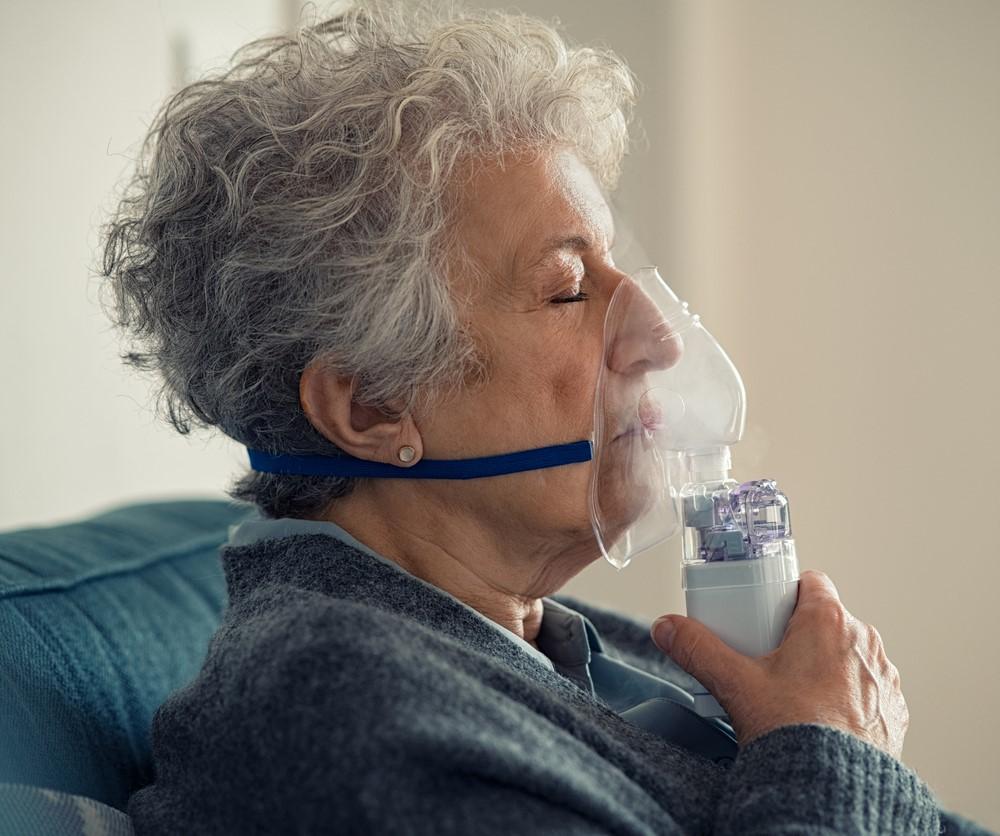A large study of adults in the United States who survived COVID-19 during the first 2 years of the pandemic found that they had twice the risk of developing pulmonary embolism or respiratory conditions in the year following infection.
In other developments, US Centers for Disease Control and Prevention (CDC) tracking today shows that the more transmissible BA.2.12.1 Omicron subvariant is now the dominant strain, as illness levels continue a steady rise across the country.
Seniors had higher risk of neuro, mental conditions
The new findings on post COVID-19 conditions come from a CDC analysis of a large electronic health record database that compared outcomes in people ages 18 and older who received a COVID-19 diagnosis in a clinic, emergency department, or hospital with people from the same settings who weren't sick with the virus.
The study included 353,164 COVID-19 patients and 1,640,776 controls. The findings appear today in an early online edition of Morbidity and Mortality Weekly Report (MMWR).
Researchers looked at 26 clinical conditions that had been previously linked to post-COVID illness. Patients were followed until their first occurrence of one of the 26 conditions or until Oct 31, 2021.
Of patients ages 18 to 64 years old, one in five COVID survivors experienced a condition linked to previous infection. Of those 65 and older, one in four experienced one of the conditions.
For both groups, the highest risk were for pulmonary embolism and respiratory symptoms. However, seniors had a higher risk of neurological conditions and four mental health conditions, which included mood disorders, other mental conditions, anxiety, and substance-related disorders. Researchers said those findings were concerning, because older people are already at higher risk for stroke and neurocognitive impairment.
The authors wrote that the findings are consistent with earlier studies showing that post-COVID problems occur in 20% to 30% of patients, with some requiring follow-up care. They said COVID prevention strategies and routine assessment for post-COVID conditions are critical for reducing the impact of the disease and its longer-term complications.
They also said more research is needed to better understand the physiologic mechanisms that contribute to the post-COVID conditions.
BA.2.12.1 becomes dominant in US
In its updated variant tracking today, the CDC estimated that the BA.2.12.1 Omicron subvariant, first spotted in New York, is now the nation's dominant strain, making up an estimated 58% of sequenced specimens. Last week, the variant made up 49.4% of sequenced samples.
BA.2.12.1 is thought to be more transmissible than BA.2, but so far, there's no evidence that it causes more severe disease.
In other US developments:
- The CDC today issued a Health Advisory Network alert to clinicians about COVID-19 rebound after treatment with Paxlovid. Symptoms can recur 2 to 8 days after Paxlovid treatment, and patients can test positive again after having tested negative. The CDC said Paxlovid treatment helps prevent hospitalization and deaths and said a brief return of symptoms might be part of the natural history of SARS-CoV-2 infection, regardless of treatment or vaccination status. So far, rebound infections are reported to be mild and the condition can be managed with isolation and masking.
- For the week ending May 17, more than 107,000 COVID-19 infections were reported in kids, up 72% from 2 weeks ago, the American Academy of Pediatrics said in its latest update.
- The nation's 7-day average for daily COVID-19 cases is 107,316, with 312 daily deaths, according to an analysis from the New York Times.
WHA shores up WHO funding
The World Health Assembly is meeting this week in-person in Geneva today for the first time since the start of the pandemic, and today the group adopted a more sustainable funding mechanism to support the World Health Organization (WHO).
The plan gradually increases member contributions to eventually make up 50%—up from 16% currently—of the WHO's core budget by 2030-2031. It also includes measures to replenish funds to broaden financing and strengthened WHO governance to add transparency, efficiency, and accountability.
The WHA, made up of health leaders from 194 member states, is the decision-making body of the WHO.
In other WHA developments, the group re-elected the WHO's Director-General Tedros Adhanom Ghebreyesus, PhD, to serve a second 5-year term. He was the only candidate.
In other global developments:
- The European Medicines Agency has approved the use of AstraZeneca-Oxford COVID-19 for third-dose boosters in both those who got the vaccine as their primary series and in those who got an mRNA vaccine.
- North Korea says its "fever cases" are starting to decline, but global health officials say it's extremely difficult to gauge the country's COVID-19 surge situation, according to Reuters. So far, North Korea hasn't responded to offers from other nations to help. At the World Economic Forum this week, South Korea is expected to press for help for North Korea.





















